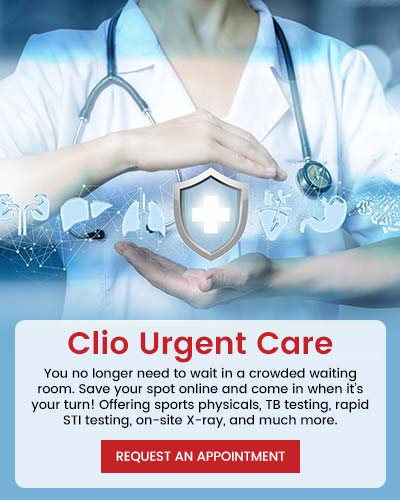Urgent Care in Fresno: High-Quality Medical Services without the Wait
Urgent Care in Fresno: High-Quality Medical Services without the Wait
Blog Article
Leading Benefits of Picking Urgent Take Care Of Rapid, Trustworthy Treatment
In today's fast-paced world, the choice of where to look for clinical treatment can dramatically impact patient outcomes (urgent care fresno). Urgent care centers have actually emerged as a functional choice to typical emergency situation spaces, using a number of advantages that cater to both individual needs and broader healthcare needs.
Quick Access to Care

Urgent treatment centers are strategically located to increase ease of access, often running in communities where locals might experience barriers to obtaining prompt care. These centers are designed to take care of a variety of non-life-threatening conditions, consisting of fractures, strains, breathing infections, and a lot more. The ability to stroll in without a visit further improves the convenience of immediate care services.
Moreover, immediate care carriers are furnished with analysis tools and therapy capabilities that permit fast analysis and administration of wellness issues. This makes sure that patients get the necessary treatments swiftly, which can be crucial in stopping problems. In general, urgent treatment services connect the gap in between health care and emergency solutions, using a crucial solution for those in requirement of quick clinical attention.
Extended Hours of Procedure
Prolonged hours of procedure are an essential attribute that improves the charm of immediate treatment services. Unlike standard clinical centers that generally abide by conventional workplace hours, immediate care centers typically operate holidays, weekend breaks, and evenings. This versatility permits people to seek clinical attention beyond traditional hours, fitting those with requiring job timetables or family members commitments.
The schedule of extensive hours makes certain that people can receive timely treatment for non-life-threatening conditions, such as small injuries, ailments, or infections, without the requirement to await an appointment at a medical care physician's workplace. This is especially valuable for individuals that may not be able to require time off work or who experience health and wellness concerns throughout off-hours.
Additionally, the extensive hours add to reduced congestion in emergency clinic, as patients can select urgent care centers for less severe clinical concerns. This not only minimizes pressure on emergency situation services yet also allows immediate care centers to supply focused, effective care. Ultimately, the extensive hours of operation at urgent treatment facilities significantly improve accessibility to medical care, ensuring that individuals can get the medical attention they require when they need it most.
Cost-Effective Therapy Choices
Economical therapy alternatives are a specifying advantage of immediate care solutions, making them an appealing option to standard health care settings. Immediate care centers generally use lower co-pays and out-of-pocket expenditures compared to emergency situation rooms, which can substantially minimize the monetary concern on individuals seeking immediate treatment.
Many immediate care facilities are designed to deal with a variety of non-life-threatening problems, such as minor injuries, ailments, and diagnostic testing, at a portion of the price connected with medical facility visits. Individuals take advantage of clear pricing structures, commonly permitting them to know the prices upfront without the shock bills that can accompany emergency care.
Additionally, immediate treatment facilities frequently accept a vast array of insurance policy strategies, which further enhances their ease of access and affordability. For those without insurance coverage, many centers provide competitive self-pay rates, making it easier for individuals to receive the needed treatment without incurring crippling debt.
Comprehensive Series Of Solutions
Urgent care facilities provide a comprehensive series of services that accommodate various medical requirements, further improving their allure as an option to typical healthcare settings. These facilities are furnished to take care of a large variety of non-emergency conditions, including minor injuries such as cuts, cracks, and sprains, as well as illnesses like the influenza, strep throat, and infections.

Moreover, urgent treatment centers are typically staffed by certified physician, including medical professionals and registered nurse experts, who are educated to deal with a varied range of health and wellness issues. This enables for reliable and efficient therapy, ensuring that clients obtain the appropriate treatment customized to their certain needs. Generally, the thorough series of solutions readily available at urgent care centers makes them a valuable source for people looking for instant and reliable clinical attention.
Decreased Wait Times
Among one of the most substantial benefits of immediate treatment centers is their lowered delay times compared to traditional emergency rooms. Patients seeking immediate medical interest frequently face long delays in emergency areas, where the extent of problems determines concern. In comparison, immediate treatment centers are developed for non-life-threatening issues, enabling visit homepage them to provide faster therapies and examinations.
Normally, people at immediate care facilities can anticipate to be seen within 15 to 45 mins, substantially shorter than the average delay time in emergency situation settings, which can go beyond a number of hours. This performance is specifically valuable for people with small injuries, illnesses, or those calling for timely care but not always emergency treatment.
Additionally, urgent treatment facilities are typically strategically situated within neighborhoods, making them more obtainable and minimizing travel time. The structured processes at these facilities likewise add to quicker enrollment and therapy, enhancing the overall individual experience.
Final Thought
In recap, the selection of urgent care centers for clinical therapy provides various advantages, consisting of timely access to care, prolonged functional hours, and cost-efficient options. The benefits of urgent care make it an important option to typical emergency situation divisions for those seeking visit the site immediate clinical attention (urgent care fresno).
Quick access to care is an essential advantage of using immediate care services.Immediate treatment facilities are purposefully situated to raise accessibility, frequently running in neighborhoods where locals may experience barriers to obtaining prompt see post treatment. Generally, immediate care services bridge the gap between primary treatment and emergency situation solutions, providing an important option for those in requirement of quick medical attention.
Moreover, the extensive hours add to minimized congestion in emergency areas, as people can select urgent care centers for less severe clinical worries.In summary, the selection of immediate care facilities for clinical treatment provides numerous advantages, consisting of timely accessibility to care, expanded operational hours, and cost-efficient choices.
Report this page